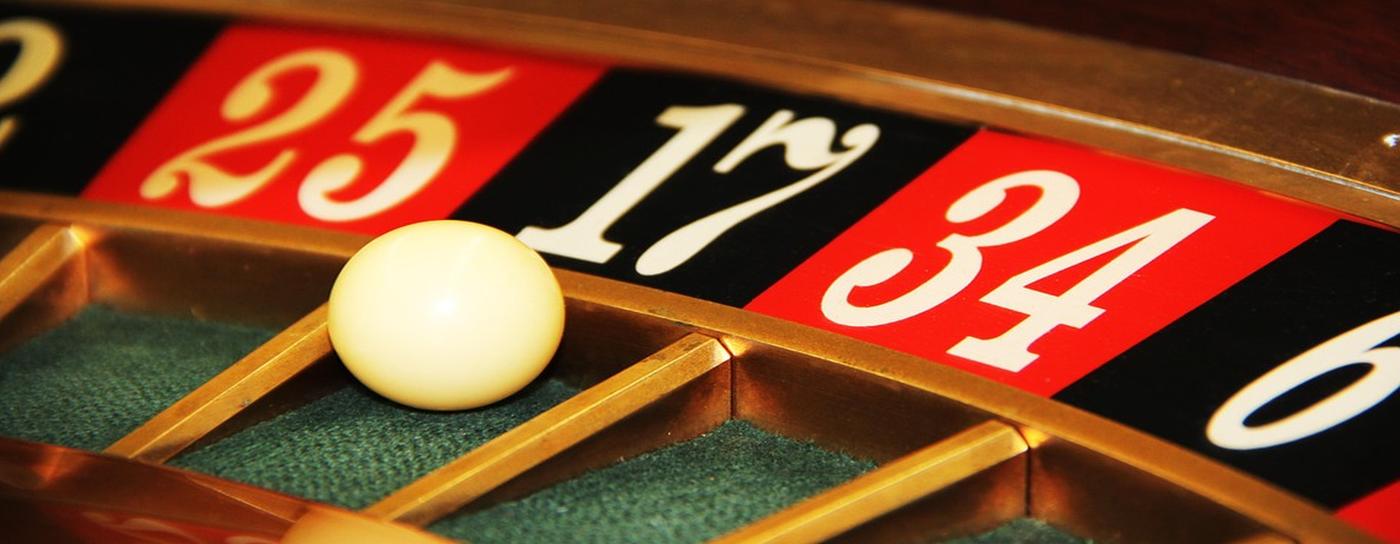
Introduction
J4P is convinced the Gambling Act (2005) white paper review won’t deal with affordability. The ‘rumour mill’ seems to be that affordability will be handed back to the Gambling Commission, despite the Racing Post articles this week hinting otherwise.
The Gambling Commission will probably use another consultation to take things forward. This provides another chance for everyone, including those who like a bet, to put their views forward (again, if you did the first time).
This blog is the first in what we hope will be a series about how people who like to bet will still be able to, without undue privacy intrusions, whilst still much better protecting those who have a gambling disorder.
J4P would argue that a white paper wasn’t needed for what this series will feature – that is, the series will primarily discuss present gambling industry practices and, if these were used as fairly and safely as possible, further intrusion into customer’s lives would not be needed.
We welcome views on anything written. J4P also welcomes approaches from people who have ideas they would like to see discussed on this theme.
The topic
Reducing the number of people affected by gambling disorder has become a high-octane topic over the last couple of years, not least as part of the never-ending lead up to the Gambling Act review white paper.
In the world of those who bet regularly, show ability, and end up struggling to withdraw winnings or to bet with traditional bookmakers, it has become a major worry – primarily due to the discussions about intrusive affordability checks. This has not been helped by the regular publication of scare stories, based on no evidence whatsoever, frequently quoting the Betting and Gaming Council.
What we rarely, if ever, get to read are balanced stories that discuss possible solutions based on present gambling industry practices, e.g. little or no change to the present situation, or other possible ideas that might be seen as more palatable for those of us who like a bet.
Sports-betting customers should not be surprised by the specialist media scare tactics. After all, most of these media outlets have substantial affiliate income from gambling companies. These media outlets need people to bet and lose, so any changes that may be thought to reduce betting and losing – including via online casino losses – are unlikely to be welcome.
Ideas that change little, if anything, for most – but may help
In this blog, J4P puts forward the idea of stake restrictions as a possible option that may help those with a gambling disorder.
This idea changes nothing for those who bet for ‘fun’ (whatever that term means) and those who bet to win, because it already happens to the ‘potential winners’ group. However, it might just help those with a gambling disorder.
For those who don’t know (the rest of you switch off for a few moments), it’s important to know how stake restrictions are implemented for those who are deemed a danger to gambling company profits.
It’s a simple system. A customer places a bet – or, more likely, some bets – and a combination of automated internal systems, third-party spying systems and a human decide a customer is unlikely to be profitable for the company. There is little point in going into why a customer might be thought to be unprofitable in the medium-to-long term here, because the important thing is what happens next.
There is usually no communication with the customer and the stake restriction is instant. How large a restriction will depend on the perceived danger to profit, e.g. £100 stakes might become £75, £50, £5, 50p or even nothing. The same percentage reductions will apply for original stakes of £20, £10, £5, or whatever. It is a myth that stake restrictions only affect large staking customers.
The first time a customer will learn that they have been restricted is when they see the message ‘stake too large’, or similar words, when trying to place a bet. There is no negotiation. Either the customer accepts the stake offered, e.g. 50p, or has to accept the situation and not bet. We don’t have any public data on how many customers don’t accept the stake offered instead of the £100, £50, £20, or whatever they requested, but J4P would assume a lot don’t, especially if the amount offered is under £5. This is a very effective system if your objective is to stop a customer betting. Restricting to a matter of pence also means a gambling company can claim that a customer’s account has not been closed, when in effect it is has been.
The next thing that happens is the gambling brand who has placed the stake restriction will, quite legally, tell all its other owned brands to stake-restrict the customer, thus potentially stopping them betting with all associated brands in the same ownership group.
Then, dependent on what online spying technology a brand utilises, they may tell lots of other gambling companies as well, thus potentially stopping the customer from betting with them, too. This is done by sharing e-device and other so-called “non-personal” data. As was proven recently, dependent on who you bet with, Google and/or Facebook might know when you deposit to a gambling account. So, do they and others have a role in helping to prevent gambling harm?
J4P’s thoughts begin to wander… Does all this amount to a ‘single customer view’, but without the submission of bank statements, pay slips, etc? It is certainly the beginnings of a ‘single customer view’ if you’re a gambling company who can afford all the tricks of the online data-spying trade – sorry, the high-quality data-management business.
J4P politely suggests a similar system for those who are losing, in preference to some of the extremely expensive interventions we are constantly told about – albeit they would still have a role.
Applicable case example (which J4P can support with data)
The following is taken from a subject access request. The first column outlines the speed everything happened initially, e.g. from 23:38 on February 1st to 03:01 on February 2nd.
The second column, explains that personal details were provided and then terms and conditions accepted at 23:38 on the 1st. It then took six minutes for basic know your customer (KYC) automated processes to be complete. A debit card was added and a first deposit was made and accepted at 23:45. The rest is self-explanatory, e.g. an increase in deposit size, culminated in four £1000.00 deposits within 36 minutes. The final £1000.00 deposit at 03:01 means that £3000.00 had been lost in a maximum of 35 minutes.
Table 1
| Time | Record |
| 23:38 | Claim terms Conditions Date, value 2019-02-01 added to player. Reason: . |
| 23:44 | KYC Status changed from Not Started to Accepted. |
| 23:45 | Has Deposited changed from False to True. |
| 23:45 | Visa Debit Card ending in *************33 has been added. Reason: Card payment entity has been created. |
| 23:45 | A Deposit of 100.00 GBP is Completed. Reason: Transaction completed. |
| 01:10 | A Deposit of 200.00 GBP is Completed. Reason: Transaction completed. |
| 02:18 | A Deposit of 600.00 GBP is Completed. Reason: Transaction completed. |
| 02:25 | A Deposit of 1000.00 GBP is Completed. Reason: Transaction completed. |
| 02:28 | A Deposit of 1000.00 GBP is Completed. Reason: Transaction completed. |
| 02:33 | A Deposit of 1000.00 GBP is Completed. Reason: Transaction completed. |
| 03:01 | A Deposit of 1000.00 GBP is Completed. Reason: Transaction completed. |
The following is taken from communication between the customer and the gambling company, finally noting that 9.9K was lost in less than three days:
“I opened my account at 23:28 February 1st and by 03:01 on the 2nd I had deposited £4,900.00.
In the past you (J4P note – “you” is a company CEO) may have worked as a trader for a gambling company or maybe not, but you don’t have to be very experienced to know that a person who opens an account just before midnight, deposits £100 and within three hours is depositing an amount (£1000.00) – that is 10 fold the first £100 – might have a gambling disorder.
Anyway, I’m willing to accept that the first £2,900.00 of deposits and my play are my fault, but after that I do feel that any reasonable thinking person would think the third deposit of £1000.00 within eight minutes might have triggered something on your internal systems, so I’m not willing to accept that a person with a gambling disorder (an addict if you like) should continue to take the blame. As the SAR shows I went on to lose £9889.98 in less than three days.”
The present outcome of this case is the UK licensed operator and Betting and Gaming Council member has refused to accept that they should have acted (intervened) in the early hours of February 2nd. (All the money lost was playing slots).
J4P’s proposal in this blog is that losing customers should be treated like those who may win. That means a stake restriction of, say, 1-10p on slots and casino games would be implemented immediately once a certain amount is lost. This would be followed by instant communication between company brands to do the same and, through the use of spying software, instant communication to other gambling companies to stop further play. It already happens for winners, so why not for people losing and ruining their lives?
Those who are addicted to ‘machine’ gambling often talk about being in a ‘zone’. Instant stake restrictions mean that ‘zone’ would have to be broken in order to carry on gambling. How many might carry on is not known, but to quote a PR campaign, the 1-10p stake restriction does provide “time to think”.
The possible reaction
J4P can hear the immediate cries of “Disaster!” from the CEOs, lobbyists and some doing ‘good work’. There will be shouts of: “There are too many holes in this idea…”, “It will affect those having ‘fun’…”, and – in what has become the oldest of old chestnuts, “It will push people to the black market”. No, it won’t, if it’s done right. But some seem to want to block ideas that could be instantly effective for many, and cost-efficient.
The louder those with a financial interest criticise something, the more confident you can be that it might be a decent idea.
Initial conclusion
If it’s done right, it will affect few who bet for ‘fun’ (whatever that means). It will be non-intrusive, except for a few who are profiled incorrectly. It will affect some of those who are aspiring bettors but they’re already affected anyway, so no change there.
Nothing is a panacea, so stake-restricting those who lose – and telling other gambling companies what you have done – isn’t a panacea. But J4P’s case work certainly suggests it would have stopped some people losing their houses, their cars, their marriages, their children and ultimately their lives.
Don’t expect any serious discussion about how this idea could be implemented in the ‘corridors of power’ any time soon, except by those with a vested interest who will criticise it. Note: Those with a vested interest are, of course, those with the easiest access to the ‘corridors of power’. One reason for this is that it would require gambling companies to be candid about the means they use to restrict unprofitable customers.
At present, it seems the gambling industry and their lobbyists much prefer to fund GambleAware, who then fund treatment providers and other services. The industry and lobbyists are also very keen to fund organisations that deliver information sessions about gambling. All these aforementioned services are important, but this shouldn’t prevent discussion about other approaches that would have an immediate preventative impact on gambling harm, whilst not impinging on the privacy of all gambling customers.
Future discussions
With any proposed idea, it is extremely important to discuss where its weaknesses may lie. However, this must be done within the context of admitting there is no panacea for eradicating gambling disorder. It is all about trying to reduce the impact of gambling disorder whilst maintaining a legal, regulated, viable, and fair gambling industry.
An obvious weakness for stake restrictions as a tool – despite stake restrictions for winners being well-established in betting shops – is that it would be difficult to implement for those who are losing unaffordable amounts in betting shops immediately. As we know the self-exclusion scheme is at present next to useless in betting shops, primarily due to resistance by the Betting and Gaming Council, and others, for moving towards a digital system.
J4P has concrete evidence that a major retail operator uses shop-staff WhatsApp groups to track winning customers in real time, e.g. telling nearby sister outlets when a customer leaves one shop, describing what that customer is wearing, etc. This is unlikely to be a practice limited to one gambling brand.
The usage of such digital tools is therefore another example of an existing injustice. It is resisted for those who are vulnerable, but used actively against those who win.
Another initial weakness would be that not all online operators can afford the spying-technology options that would be necessary to report a stake-restricted customer immediately to other operators under different ownership. This issue shouldn’t be insurmountable, however. Perhaps a single scheme could be subsidised for those under a certain turnover/profit level?
Of course, the Betting and Gaming Council will bring up privacy issues here, but there is a simple answer to this: the aforementioned practices are already happening daily. Said practices have been reported to the Information Commissioner’s Office and the Gambling Commission, but they have done nothing, which necessarily leads J4P to conclude that they are not a breach of privacy law. This precedent would suggest that what J4P proposes here could begin immediately – with the exception of protecting those customers who shouldn’t be reported within the process being proposed, e.g. those who win, and those who look like they might win or lose in ways that don’t trigger the agreed vulnerability flags.
J4P isn’t sure that any of the companies presently providing the type of ‘spying’ service required can be trusted. It would need constant oversight by an independent team with the ability to identify, fine, and if needed, remove the licences of those gambling companies that abuse the system, e.g. use the system to impact on the wrong customers.
Clearly a major issue will be setting boundaries as to when to stake-restrict losing customers. We don’t need artificial intelligence; we need good, honest traders for sports betting, and good software for online casino products that follows and instantly implements any agreed boundaries.
There may be other weaknesses that people can identify. However, until J4P is shown a drawback that is insurmountable, this stake restriction idea should – and must – be discussed.
Final conclusion for now
The Betting and Gaming Council, and others, have shouted very loudly about the, “Millions of people who enjoy a flutter” during the build-up to the White Paper. These people will not be treated any differently by this proposal – and some with a gambling disorder may well be stopped from ruining their lives. Does this sound reasonable?
Sure, it doesn’t address the fairness of existing stake restrictions for those who are deemed possible winners. Nor does it help those who are not paid out when gambling companies invent social responsibility and legal reasons for withholding their winnings. These are other topics for another day. But this idea does at least, utilise a set of very effective tools for those who may be vulnerable whilst not making things worse for everyone else.
After all, what is ‘good for the goose is good for the gander’. All fair and equal, as they say.
Note: J4P’s submission to the White Paper consultation was greatly focussed on fair data-collection and data-usage. Fair data-usage is an important tool in making the UK gambling market fairer and safer, but not when the regulator puts industry lobbyists in charge of developing data projects. What a silly and dangerous decision that was.








